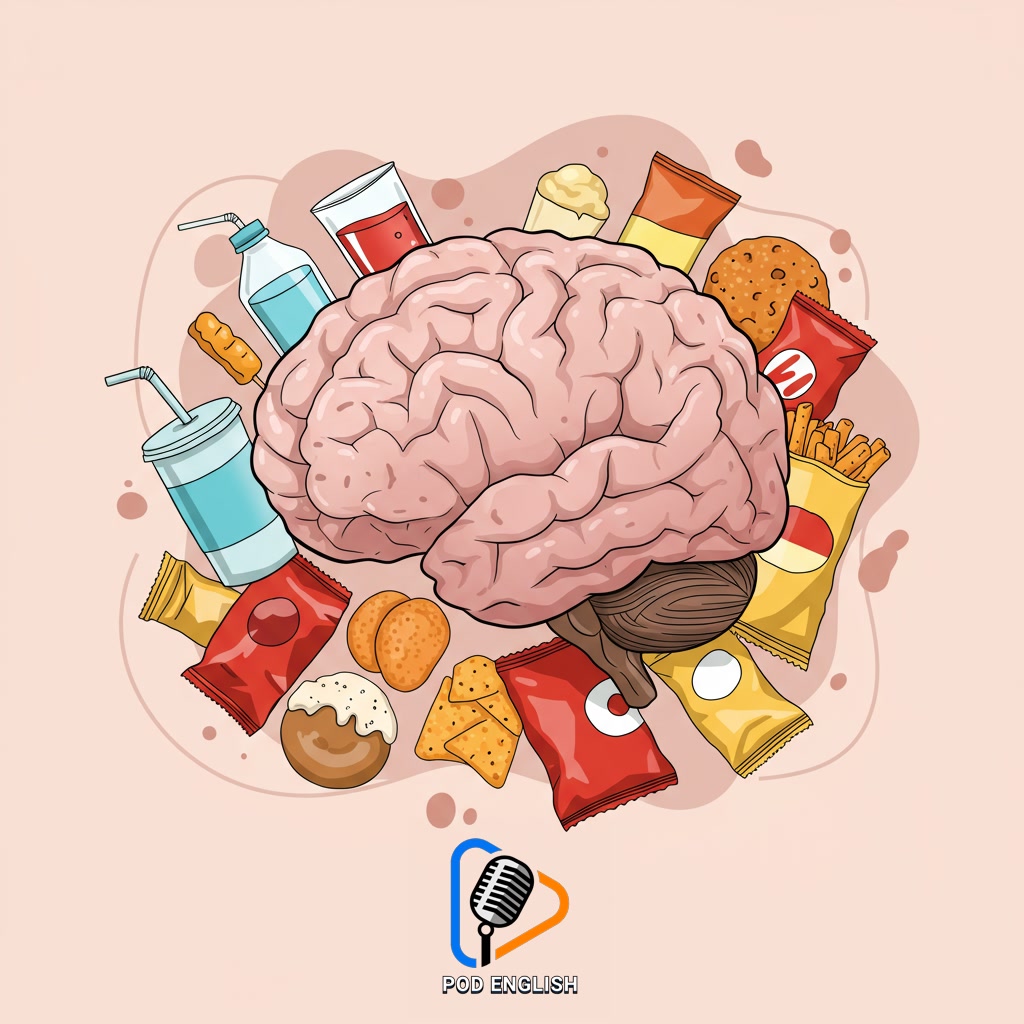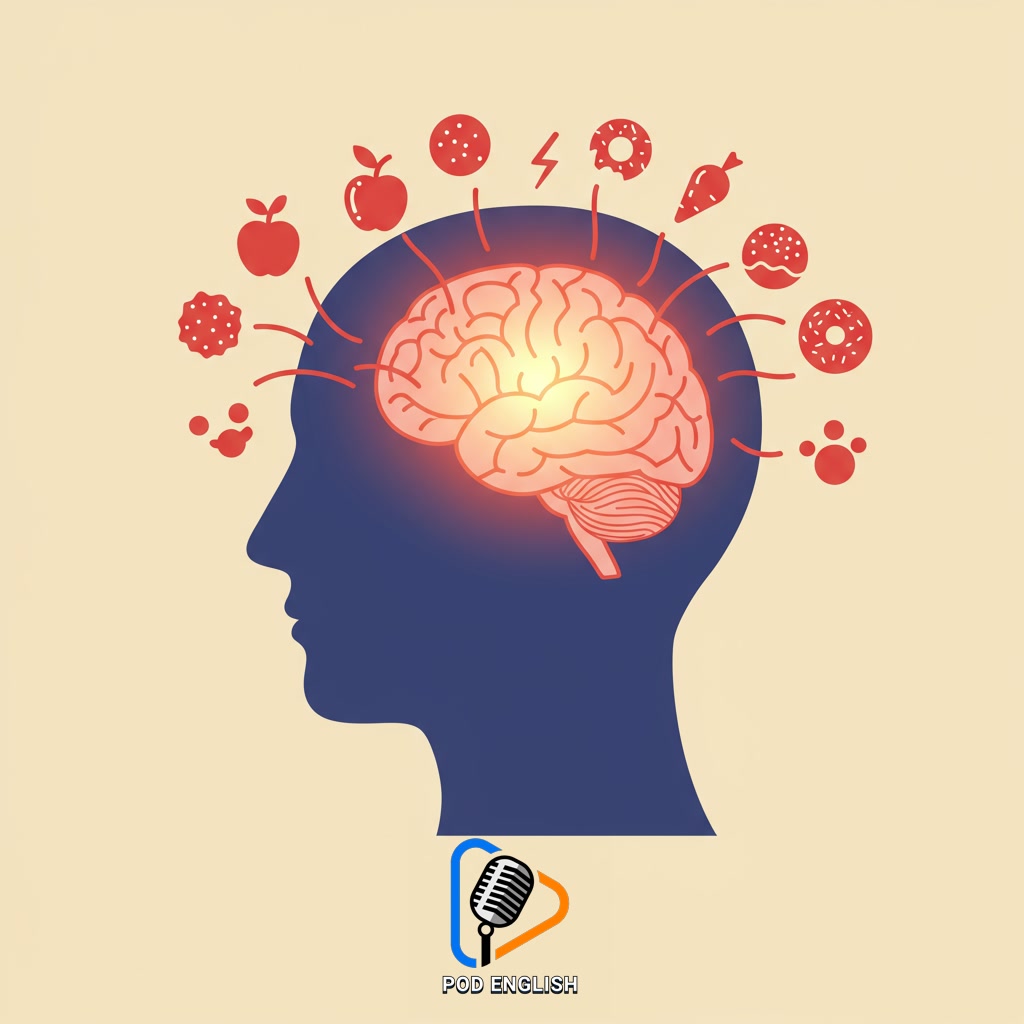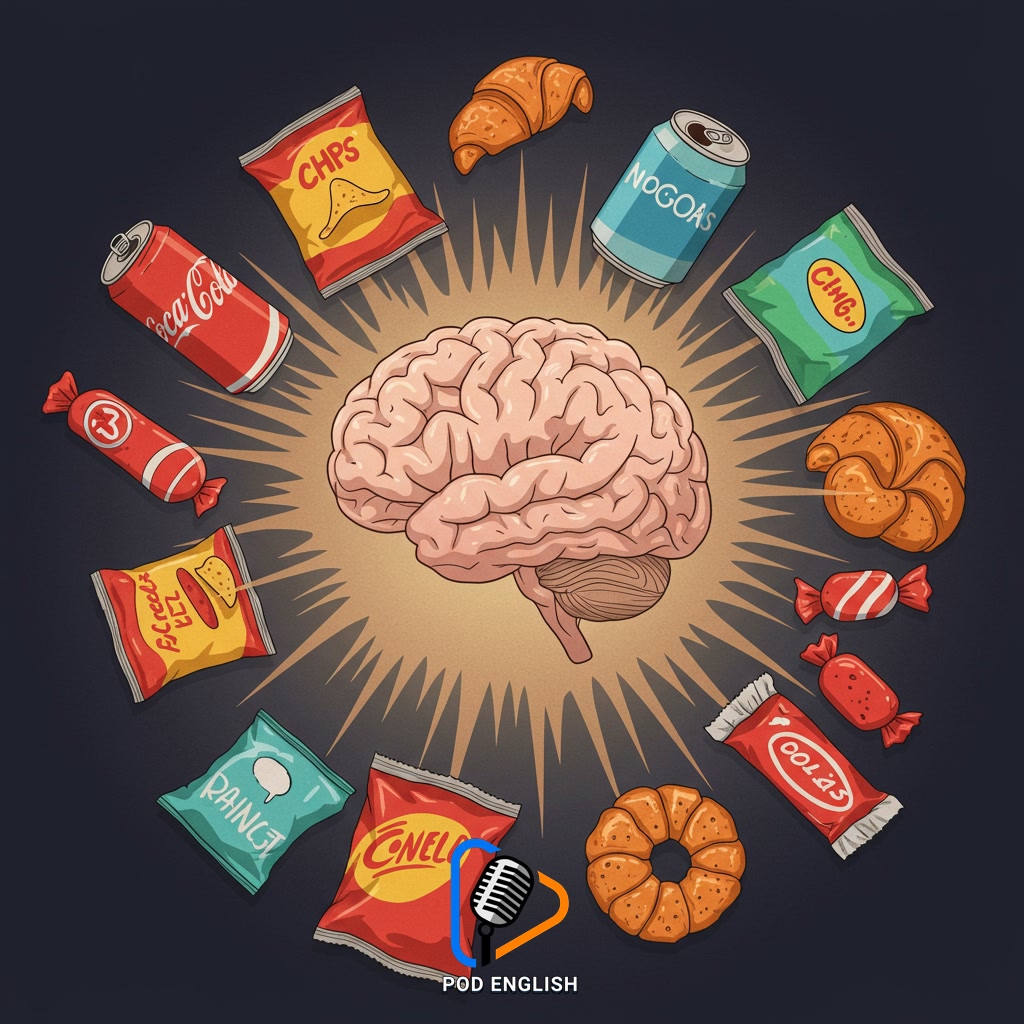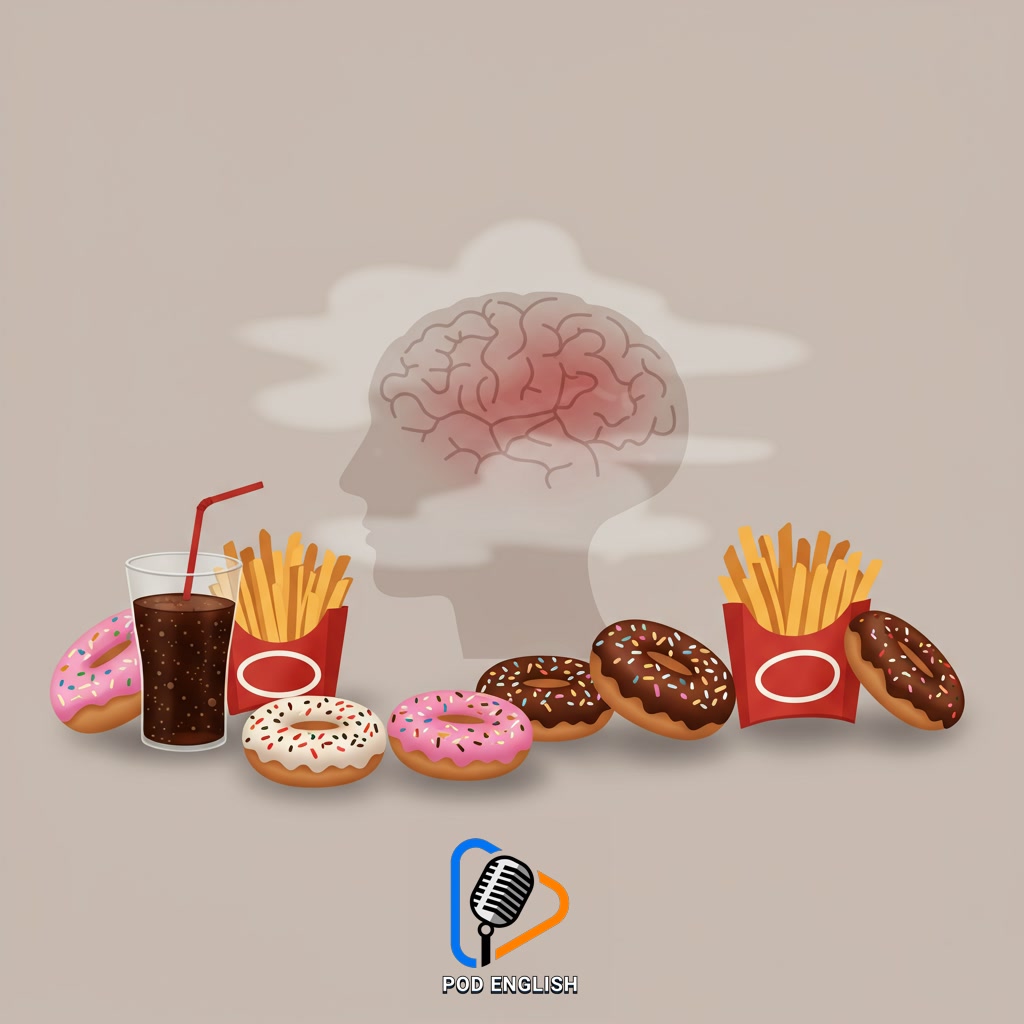Learn English
Unlock Your Brain Power Foods to Avoid for English Learners

This content examines the link between food choices and cognitive function, particularly for those engaged in learning English. It highlights specific foods that may impede brain power and hinder the learning process. By understanding which dietary items to avoid, English learners can potentially enhance their mental performance and improve language acquisition. The discussion provides guidance on making better food decisions to support effective study.
Table of Contents
- Section 1: The Crucial Link Between Diet and Effective Learning
- Section 2: Understanding How Certain Foods Hinder Brain Function
- Section 3: Specific Foods to Avoid: The Brain Drainers for English Learners
- Section 4: How These Foods Negatively Impact Your Learning English Progress
- Section 5: Making Smarter Choices to Boost Your Brain Power for English
- Section 6: Conclusion: Fuel Your Mind, Master English
Section 1: The Crucial Link Between Diet and Effective Learning
Our brains are incredibly complex organs, and just like any other part of our body, they need the right fuel to function optimally. When you’re learning a new language like English, your brain is working hard, making new connections and processing lots of information. What you eat has a direct impact on how well your brain can perform these tasks. Think of your brain as a high-performance engine; feeding it the wrong kind of fuel can lead to sluggishness, difficulty concentrating, and reduced memory retention. Understanding this crucial link between your diet and your cognitive function is the first step towards making food choices that support your learning journey and help you unlock your full brain power for mastering English.

The Crucial Link Between Diet and Effective Learning
Section 2: Understanding How Certain Foods Hinder Brain Function
Building on the idea that our brains require proper nourishment, it’s crucial to understand that not all foods provide beneficial fuel. In fact, certain dietary choices can actively hinder cognitive function, making tasks like learning English more challenging. Foods high in refined sugars, unhealthy fats, and processed ingredients can cause rapid fluctuations in blood sugar levels, leading to energy crashes and difficulty maintaining focus. They can also contribute to inflammation, which disrupts the delicate pathways of communication between brain cells. Over time, poor food choices can even impair memory retrieval and slow down processing speed, directly impacting your ability to absorb and retain new vocabulary and grammar. Recognizing how these foods interfere with your brain’s performance is the first step towards making dietary adjustments that support your learning journey.

Understanding How Certain Foods Hinder Brain Function
Section 3: Specific Foods to Avoid: The Brain Drainers for English Learners
Building on the idea that our brains require proper nourishment, it’s crucial to understand that not all foods provide beneficial fuel. In fact, certain dietary choices can actively hinder cognitive function. Specifically for English learners needing sharp focus and good memory, foods like sugary drinks, excessive processed snacks, and meals high in unhealthy fats can be detrimental. These items often cause quick energy spikes followed by crashes, making concentration difficult during study sessions. Refined carbohydrates, found in white bread and pastries, can also lead to fluctuating blood sugar levels, impacting your ability to stay alert and retain new vocabulary. Avoiding these ‘brain drainers’ helps maintain stable energy and cognitive function, crucial for effective language acquisition.

Specific Foods to Avoid: The Brain Drainers for English Learners
Section 4: How These Foods Negatively Impact Your Learning English Progress
Building on the idea that our brains require proper nourishment, it’s crucial to understand that not all foods provide beneficial fuel. In fact, certain dietary choices can actively hinder cognitive function, directly impacting your English learning journey. Foods high in refined sugars and unhealthy fats can cause energy levels to spike and then crash, making it hard to maintain focus during study sessions. They can also contribute to inflammation, which some studies suggest can negatively affect memory and learning capacity. When your brain is struggling with unstable energy and potential inflammation caused by poor diet, absorbing new vocabulary, understanding grammar rules, or practicing conversation becomes significantly more challenging. Avoiding these foods helps ensure your brain has the stable energy and clarity needed to effectively process and retain new information.

How These Foods Negatively Impact Your Learning English Progress
Section 5: Making Smarter Choices to Boost Your Brain Power for English
Building on the understanding that certain foods can impair focus and memory, the key isn’t just knowing what to avoid, but actively making conscious decisions about your diet. This involves choosing to limit or eliminate items known to cause brain fog, like sugary snacks or processed junk food, especially during study times. Instead, focus on incorporating nutrient-rich foods that support cognitive function. Making these deliberate, smarter choices about what you eat directly contributes to better concentration, improved memory retention, and overall enhanced mental clarity, all of which are vital for effectively learning and practicing English. It’s about fueling your brain for optimal performance during your language learning journey.

Making Smarter Choices to Boost Your Brain Power for English
Section 6: Conclusion: Fuel Your Mind, Master English
Building on the need for conscious dietary choices, understanding which foods to avoid is a powerful strategy for English learners aiming to boost their cognitive function. By steering clear of items known to impair focus and memory, such as excessive sugar or highly processed snacks, you create a better environment for your brain to absorb and retain new vocabulary, grammar rules, and pronunciation nuances. This deliberate approach to diet isn’t about deprivation, but about empowering your mind to perform at its best during study sessions. Making these informed decisions directly supports improved concentration and faster recall, ultimately paving a smoother path towards enhancing your brain power and accelerating your journey to mastering English fluency.

Conclusion: Fuel Your Mind, Master English













